QUEER QUOTIENTS: THE LOVE AND GRIEF DUALITY IN E.R. FIGHTMASTER’S EPS
BY IRVIN RIVERA
PHOTOGRAPHER: IRVIN RIVERA, PRODUCER: JESSE ZAPATERO, FASHION STYLING: BRANDEN RUIZ, LOCATION: TOMMIE HOLLYWOOD
In the bustling world of the entertainment industry, where every minute counts, E.R. Fightmaster masterfully juggles their roles as a MUSICian, actor, and activist with an infectious zeal that's hard to miss. Amidst the release of their evocative debut EP "Violence" and the anticipation of their upcoming EP "Bloodshed Baby," E.R. opens up about the whirlwind of their professional life. "All of the things that keep me swamped are passion projects," they share, revealing a relentless pursuit of art even in their rare downtime. This isn't just a career; it's a calling. As we delve into the conversation, E.R. reflects on their groundbreaking role as Dr. Kai Bartley in "Grey's Anatomy," underscoring a significant stride towards non-binary representation in mainstream media. Their candidness about the pressures and privileges of such visibility adds layers to our understanding of their off-screen persona.
But who is E.R. Fightmaster behind the accolades and the spotlight? This multifaceted artist returns to their first love, music, through their solo project FIGHTMASTER, a liberating endeavor born from a break and a batch of songs that demanded to be heard. E.R. describes their musical narrative as one of duality—love and grief—woven into their EPs. "Violence" serves as a bold celebration of queer love, while "Bloodshed Baby" navigates the heavier themes of systemic oppression and personal turmoil. It’s clear that whether on screen or through speakers, E.R.'s work is a mirror to their journey, challenging societal norms and inviting us into a conversation that's both deeply personal and universally resonant. Stay tuned as we explore how E.R. Fightmaster uses their platform to champion identity, creativity, and change, painting a portrait of an artist as a true cultural architect.
E.R.! How are you? Amidst your busy schedule, juggling multiple projects and roles, how do you manage your time and energy, and what do you do to relax and unwind?
All of the things that keep me swamped are passion projects so I enjoy how packed my schedule is. I haven’t had a chance to unwind for a while, but whenever I actually get time to relax I become obsessed with what art I could be making in that downtime. Maybe I need more balance, but that’s not my priority right now. Life is short.
Congratulations on your debut EP, “Violence,” and your newest EP, which will be released this June, “Bloodshed Baby.” What inspired you to start your solo music project, FIGHTMASTER?
Making music has always been a necessity for me. I was on a break from my first band, TWIN, a band I co founded with my buddy Mike Aviles, and I started writing this batch of songs that felt so free and so uniquely my own. I followed an impulse and started FIGHTMASTER, and those songs became “Violence.”
“Violence” has been described as evocative and powerful. Can you share with us how this project reflects your personal journey and sets the stage for your next EP release, “Bloodshed Baby”?
I wrote “Violence” when I was falling in love and I wrote “Bloodshed Baby” while sorting through grief, but they are really two sides of the same coin. “Violence” is a playful EP of horny love songs meant to celebrate queer love as an act of violence against a system that strives to leave us hopeless. But the effect of the system’s constant domination of queer people is tangible and has an effect on the mind and body. “Bloodshed Baby” addresses that heaviness by describing it, lamenting it, and strategizing our internal armies against it. I don’t think I would have been able to explore that grief without the safety of a loving relationship and a really robust community. Art comes when you are ready to make it.
The first track on your EP “Violence,” “Bad Man,” is a powerful anthem about being transmasc in a cisnormative society. How did you develop the concept and the lyrics for this song?
I’d been dealing with a lot of transphobic garbage about what makes a “real man” and what is “real masculinity,” and it dawned on me that all these transphobic cis men were just afraid I was doing masculinity better than them. And I am. And their girlfriends agree. I hope they enjoy the song.
"Bad Man" is such a raw and impactful single, addressing the toxicity surrounding masculinity. How did your personal experiences shape the creation of this song, and what message do you hope listeners take away from it?
I think we have done ourselves a disservice by discussing “toxic masculinity” without an accompanying conversation about what healthy masculinity looks like. For me, my masculinity is the most playful and gentle thing about me. Masculinity protects and uplifts the feminine, where toxic masculinity is really about abuse and domination. I hope when femme people hear “Bad Man,” that they hear an alternative experience of masculinity, with all of the charm and intensity, but none of the violence.
Your character Dr. Kai Bartley on Grey's Anatomy has been groundbreaking for representation. Can you tell us about your experience portraying this role and the significance it holds for non-binary visibility in mainstream media?
I am grateful every day that I got to play Kai. Kai was the first trans/nonbinary person that millions of our viewers had ever really encountered, and I think it is safe to say we moved the needle a bit. That character would not have been as impactful if I hadn’t been playing across from Caterina Scorsone, the actor who plays Dr. Amelia Shepherd. She helped make that relationship so compelling that not only did the audience get to see a nonbinary doctor for the first time, they got to watch a nonbinary person be loved really beautifully. Big thanks to Shondaland for making that a reality.
How did you prepare for this role and what challenges did you face?
When I was prepping to play Kai, I tried to tap into what kind of brain would be so profoundly talented at neuroscience and research at such a relatively young age and I felt that neurodivergence was probably a factor. So I combined that neurodivergence with a little bit of swagger that I think a lot of the male doctors on the show have traditionally had, and I got Kai.
You also wrote and performed an original song, “Trouble,” for the show, which became a hit among the fans. How did that opportunity come about, and what was the process like?
The awesome Grey’s Anatomy writers happened to be fans of my band at the time, TWIN, and they approached me about writing an original song, a love song for Kai to sing to Amelia “live” on the show. I wrote “Trouble” the next day, then performed it on the show as Kai a couple weeks later. It was surreal and so much fun.
With your background in folk/rock music, how do you see the genre evolving in terms of inclusivity and representation?
I think music is becoming the most diverse landscape of the arts. We are definitely living in a golden era of queer music. It is so easy for me to spend an entire day listening to only gay artists. That would have been unimaginable when I was growing up so I feel really excited about the kids that are growing up with so much access to their own lived experiences.
How does your music intersect with your acting roles, and what opportunities do you see for further collaboration between the two mediums?
All the mediums I work in inform the others which is probably why I work so much. I have to find balance with writing and acting and music and community work or I start to feel antsy. Being an actor has helped me do more for my community, writing for television has helped me become a better storyteller, writing music is like my own mental hygiene, helping me explore big concepts and get to know myself better. I really need and enjoy them all.
How do you find the creative processes differ between acting and music? And how do they complement each other in your artistic expression?
Music feels more about self-expression to me than acting. When I act, I am trying to embody another person. When I write music, I am trying to express/explore my own embodiment.
You have a long history of comedy, from improv to sketch to stand-up. How do you balance your comedic side with your dramatic side, and which one do you enjoy more?
Improvisation is really the art of active listening, receiving information and allowing it to affect you, then responding in kind. That active listening I learned from improvising is that same skill I try to use when I am acting comedically or dramatically. I don’t find that there is too much difference between the two. I always believe the reality of my character in the scene, so the real difference is the circumstance of said character in said reality.
You were honored by the Human Rights Campaign with the 2023 HRC Visibility Award for your advocacy and representation of the LGBTQ+ community. What does this recognition mean to you, and how do you use your platform to raise awareness and support?
I am trying to do my best for my community, trying to represent in ways that are helpful, trying to tweak and learn and relearn all of the time, trying to foster hope and togetherness. Sometimes I feel this deep, tired, heaviness envelop me. Especially after an act of violence, or the passage of a new anti-trans law, or a bad day on the internet. The day that I got the call about the HRC award was one of those heavy days. It felt like a sign to keep pushing, and I am really grateful I got that call when I did. I’ve got a lot more work to do but it meant a lot to be asked to take a moment to celebrate what I have done to this point.
You have been open about your gender identity and your journey of self-discovery. How do you define nonbinary, and what advice would you give to someone who is questioning their gender?
I want to leave space for “nonbinary” to expand and change so I will only define what it means for me right now. I don’t believe in a binary mode of existence, spiritual or cultural. I believe that we are all human beings first, and that genitals don’t determine personality or worth. I believe in gender as a form of energetic expression that is beautiful and unique to every person on earth. I reject a system of governance built on a hyper-fixation with genitals.
I feel so excited for people who are questioning their gender! Asking yourself questions about gender is like entering a wormhole. You begin to parse apart which aspects of your personality are inherent to you and which ones are planted or culturally conditioned to exist in a structure dependent on gender norms. I think about gender all of the time, how in this binary gender system one gender has been assigned Dominator and the other gender has been assigned Dominated. When we question cultural gender norms, we are actually threatening the entire capitalist system that has bifurcated us in order to enforce a class system based on genitals. Pretty fucked. But in this process of deconstruction I am reconstructing my understanding of self and my sovereignty. So my advice is: be curious.
What advice would you give to aspiring non-binary artists who are navigating their identities within the entertainment industry?
The greatest asset you have is your sense of self. Trying to be anyone but you is a waste of your time. And because only you can be you, there is no reason to compete with other artists when you could be supporting and uplifting them. Strive to build community where you can. It makes all of the hard parts of our industry a lot less lonely.
You have a distinctive style and a flair for fashion. How do you express yourself through your clothing and accessories, and who are some of your style icons?
When I was a kid I loved looking at men’s cologne ads so I was absorbing a lot of really classic displays of masculinity but with a feminine flair inherent in high end fashion. I like masculine leaning androgyny. Grace Jones in the black suit. k.d. lang on the cover of Vanity Fair with Cindy Crawford.
You have collaborated with many talented artists, such as Aidy Bryant, Riley Geare, Michelle Buteau, and more. Who are some of your dream collaborators and why?
This question is so hard. I get so inspired by so many of my peers and I can imagine different endeavors with all of them. Getting to work with Aidy was pretty incredible. She is such a complete and total leader. Watching her work on Shrill helped me understand what kind of leader I want to be. Working with Michelle on Survival of the Thickest is inspiring. We were walking through the airport one time and it felt like I was walking with royalty. Even people who didn’t know her came up to tell her she should be on TV. And I love working with Riley, my co-producer and drummer for FIGHTMASTER. He pushes me to trust myself and it makes me better all the time. If you want to, you can learn something from everyone you work with.
The “American Psycho” imagery theme of this photoshoot challenges traditional notions of masculinity. How do you use this imagery to deconstruct toxic masculinity and empower marginalized voices?
To me the point of “American Psycho” was to poke fun at the fragility of the American man’s performance of masculinity. It’s a movie about men attempting to assuage their insecurities through violence and domination, which is a point largely lost on the men who love that movie.
On the other hand, people in the margins have been separated from violence, even as self-defense. Look at California’s gun regulation in response to the Black Panther movement. Look at the cultural response of the 80’s in response to the women’s empowerment movement. Look at the high rates of violence enacted upon trans bodies while those same bodies are being blamed for violence that they are statistically not committing. I want to threaten the system by mirroring it back to itself, by showing that gender and power and violence are performance acts that can be enacted by any type of body, not just cishet white men. We are more powerful when we understand ourselves beyond the victimhood structurally imposed on us.
Looking ahead, what are your hopes and aspirations for the future of your career, both in music and acting?
I want to keep exploring. I want to keep making art. I want to encourage others to explore their identities and parse apart their true self from the system of governance they were born into.
What’s a valuable lesson that you’ve learned that you always carry with you?
When people show you who they are, believe them. Be kind. Don’t talk too much shit. Be gentle with yourself. Be disciplined. Don’t text that mean thing. Go to bed. It’s always better in the morning.
If you were a book, what book would you be and why?
Last year I read The Communism of Love by Richard Gilman-Opalsky and it changed my life. I bought a copy for all of my artist friends. It’s a little theory, a little philosophy, and a little strategy for a better mode of existence for all. It’s a reminder that we are the ones responsible for creating a better reality for ourselves and each other.





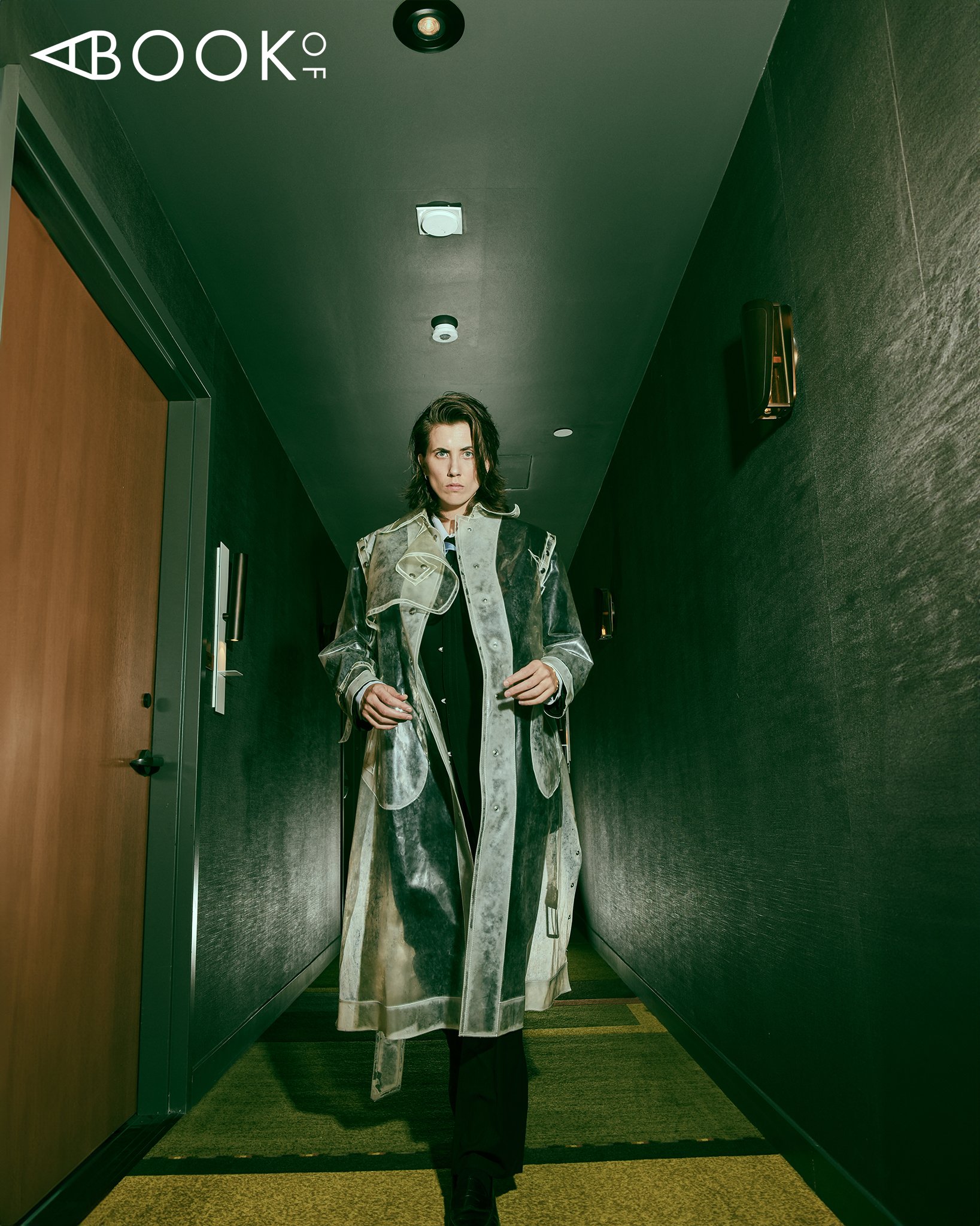
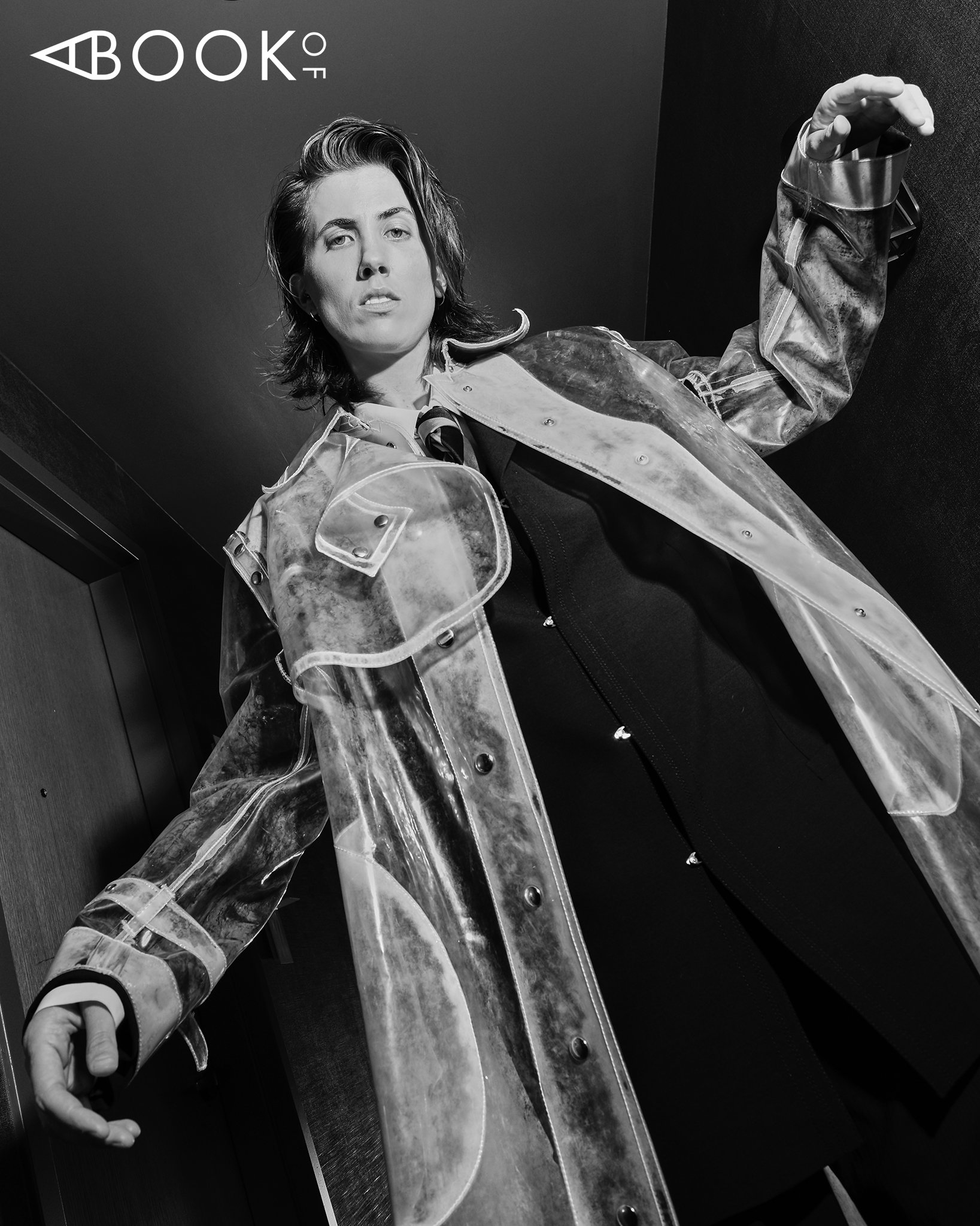
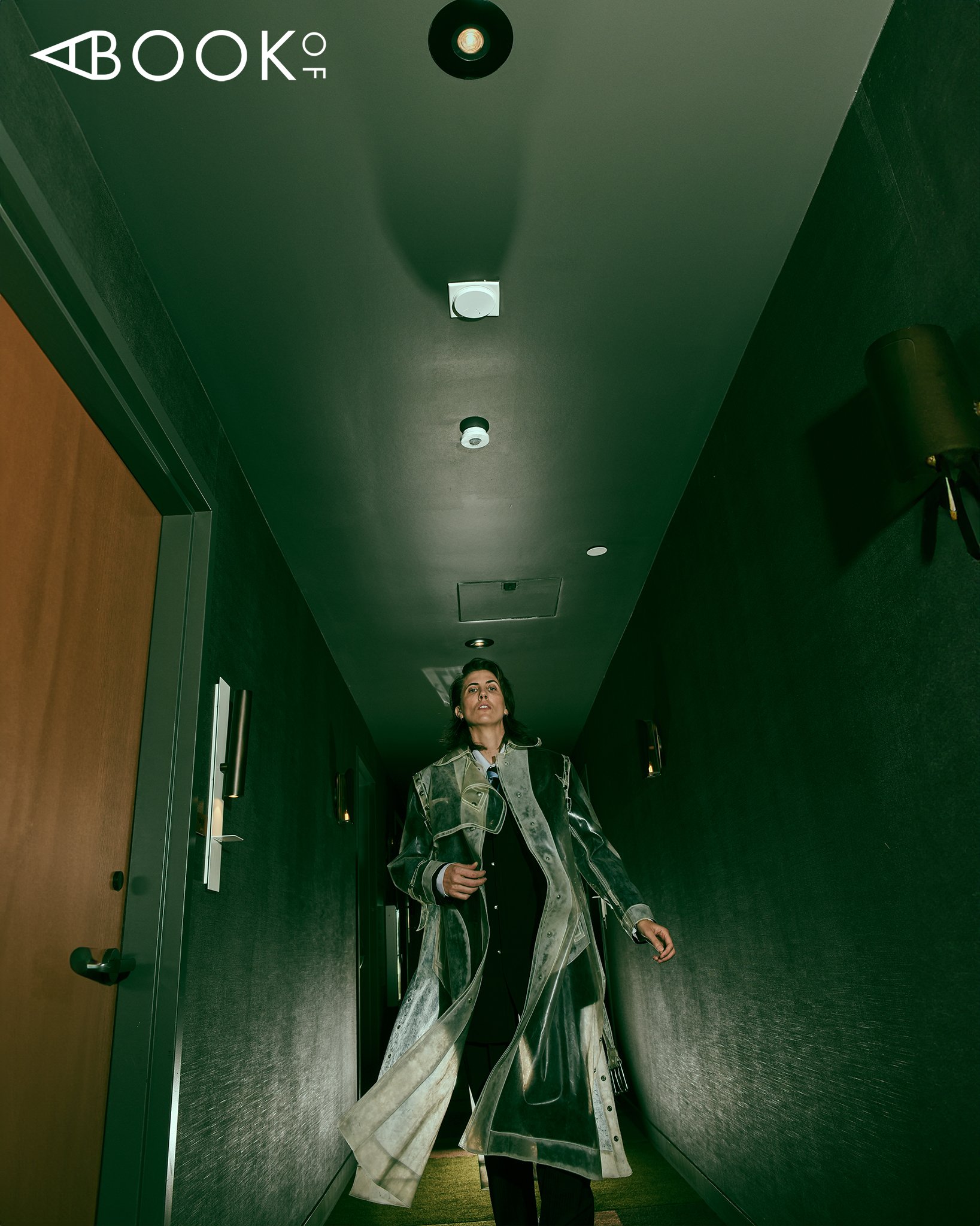
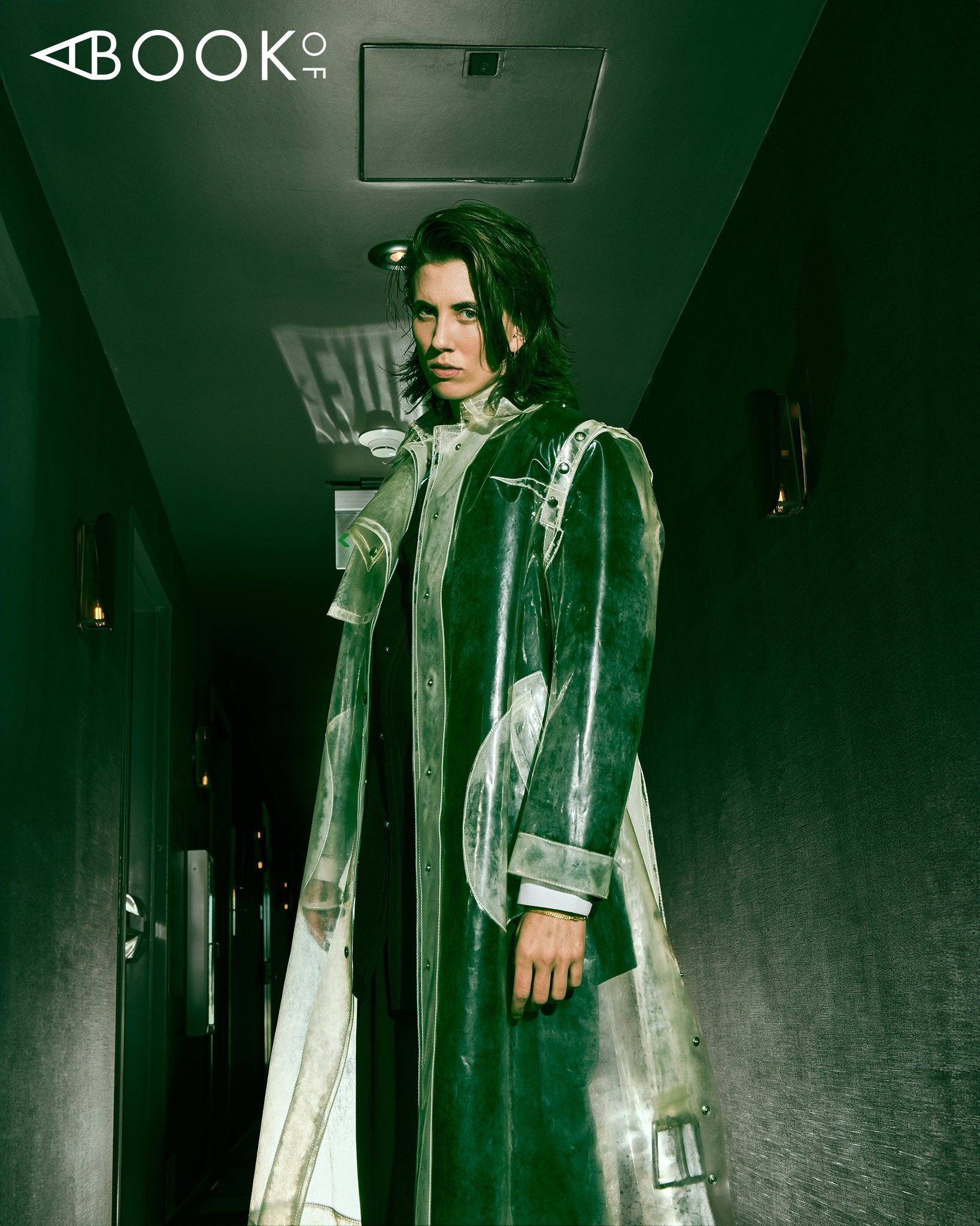


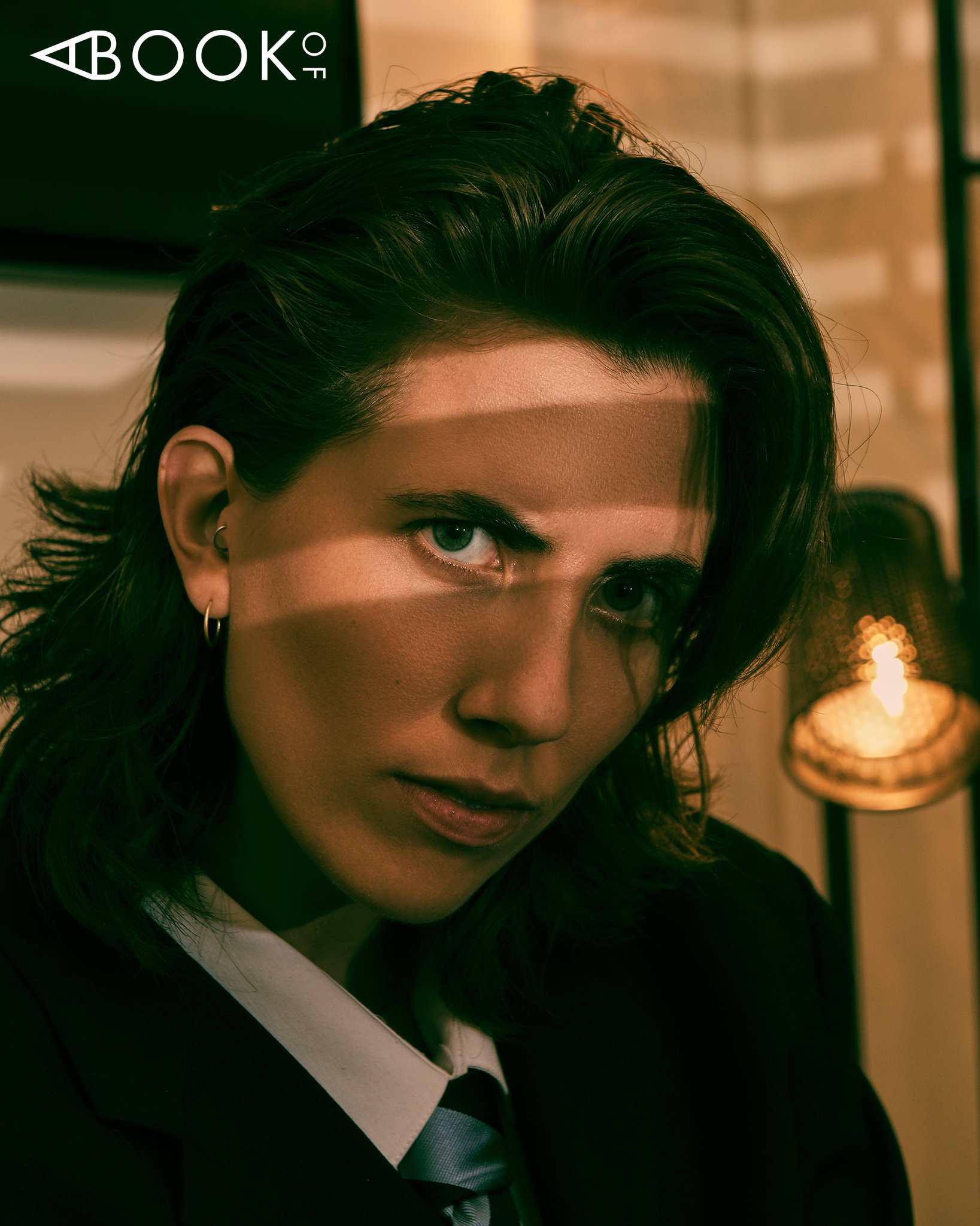
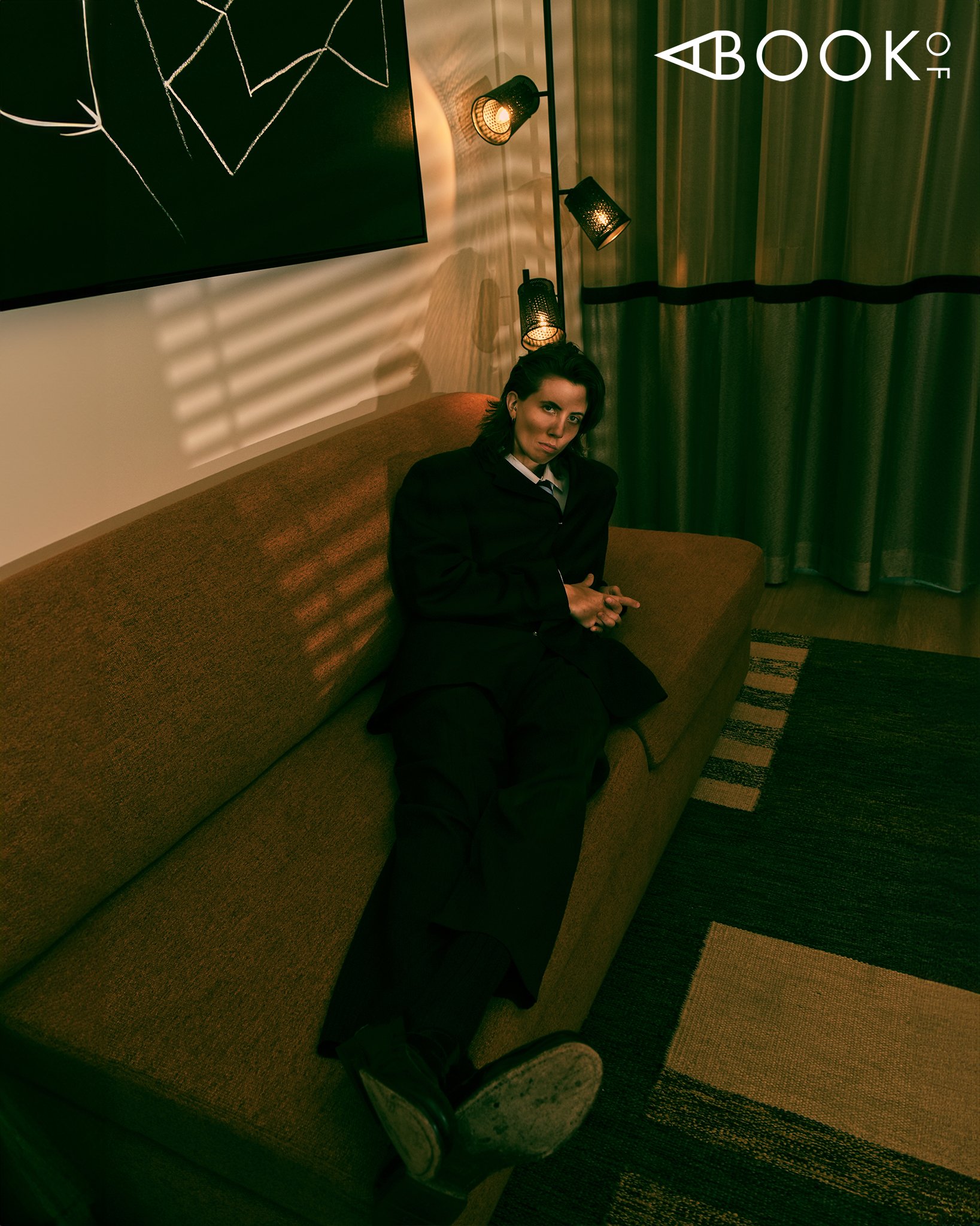
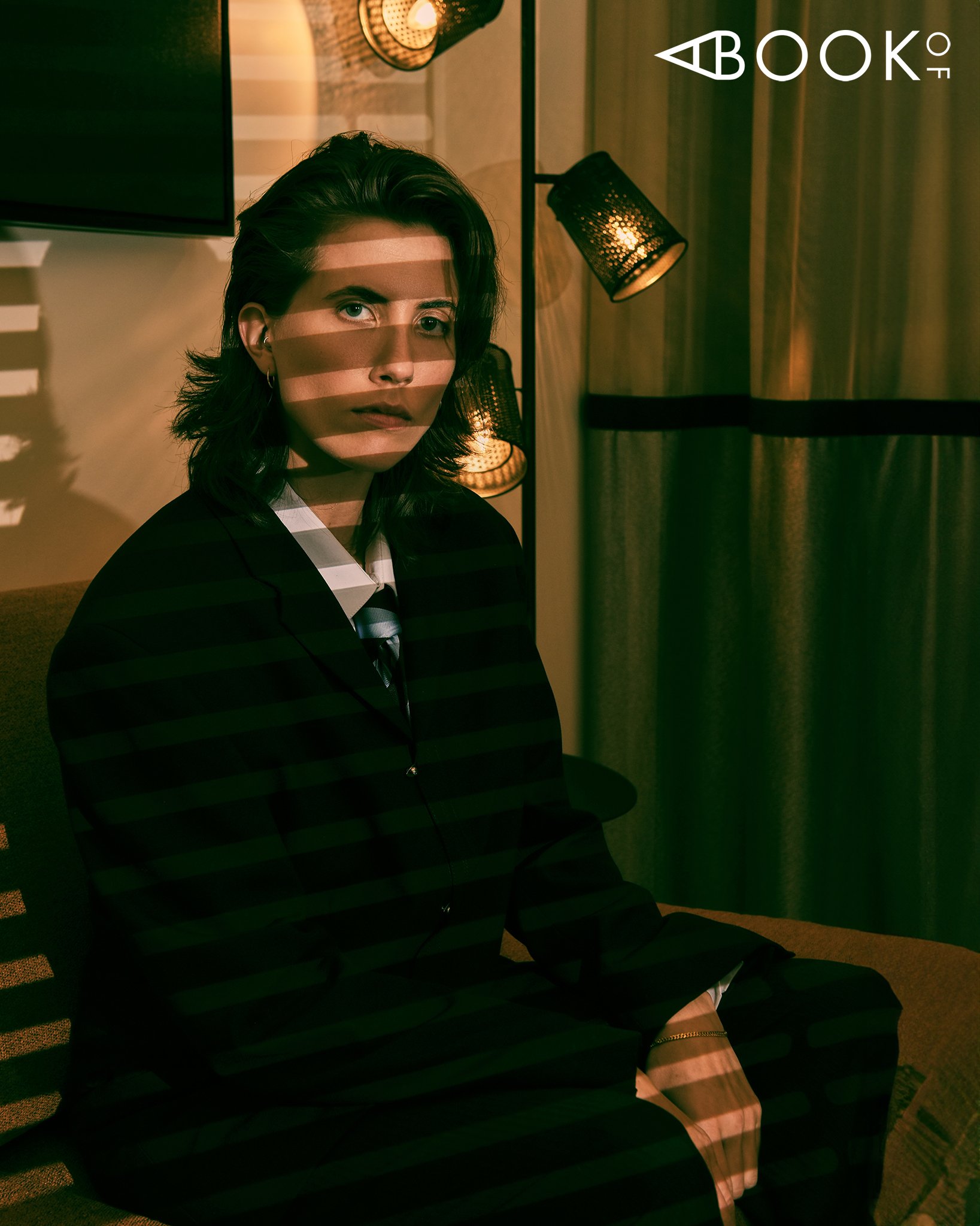
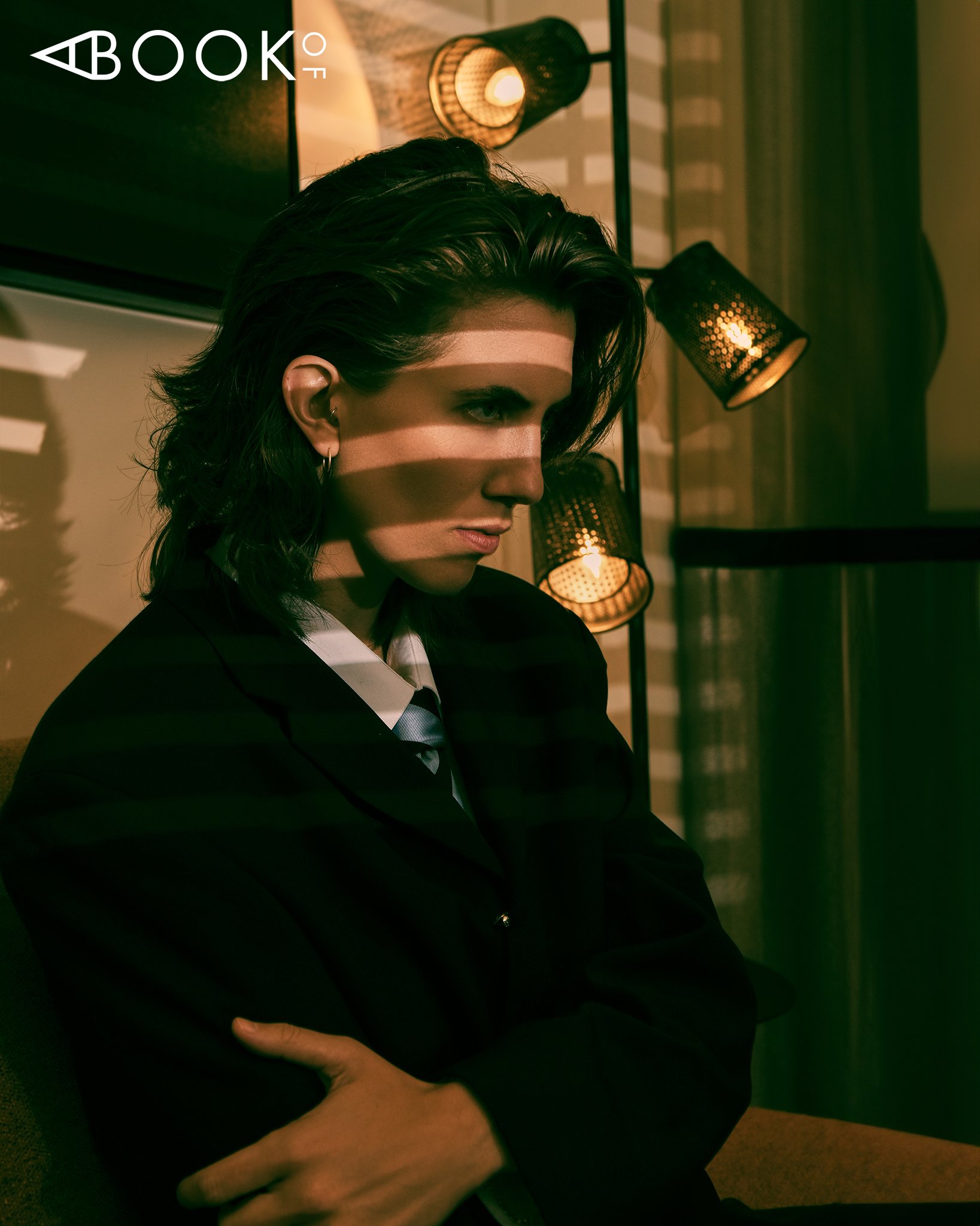


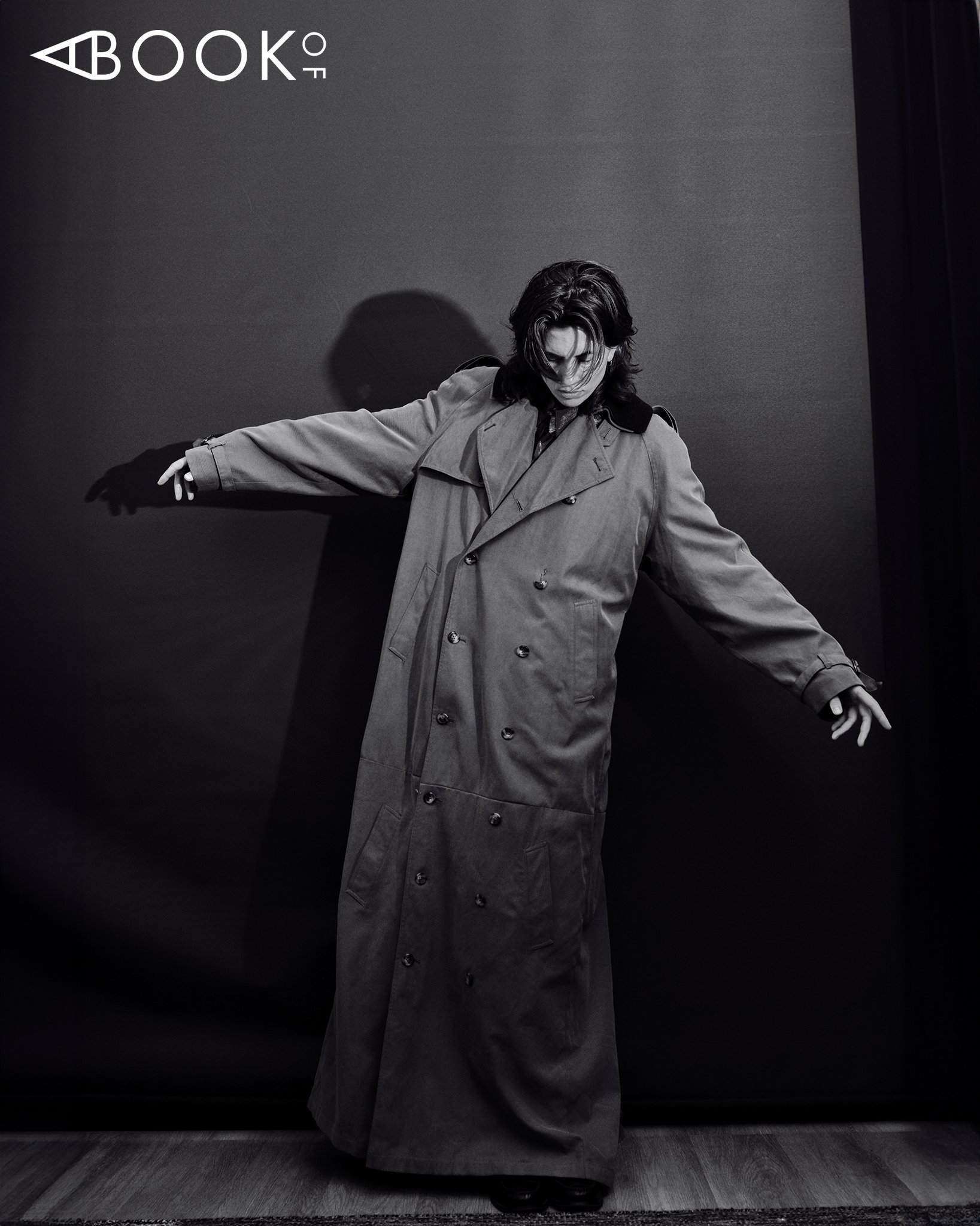
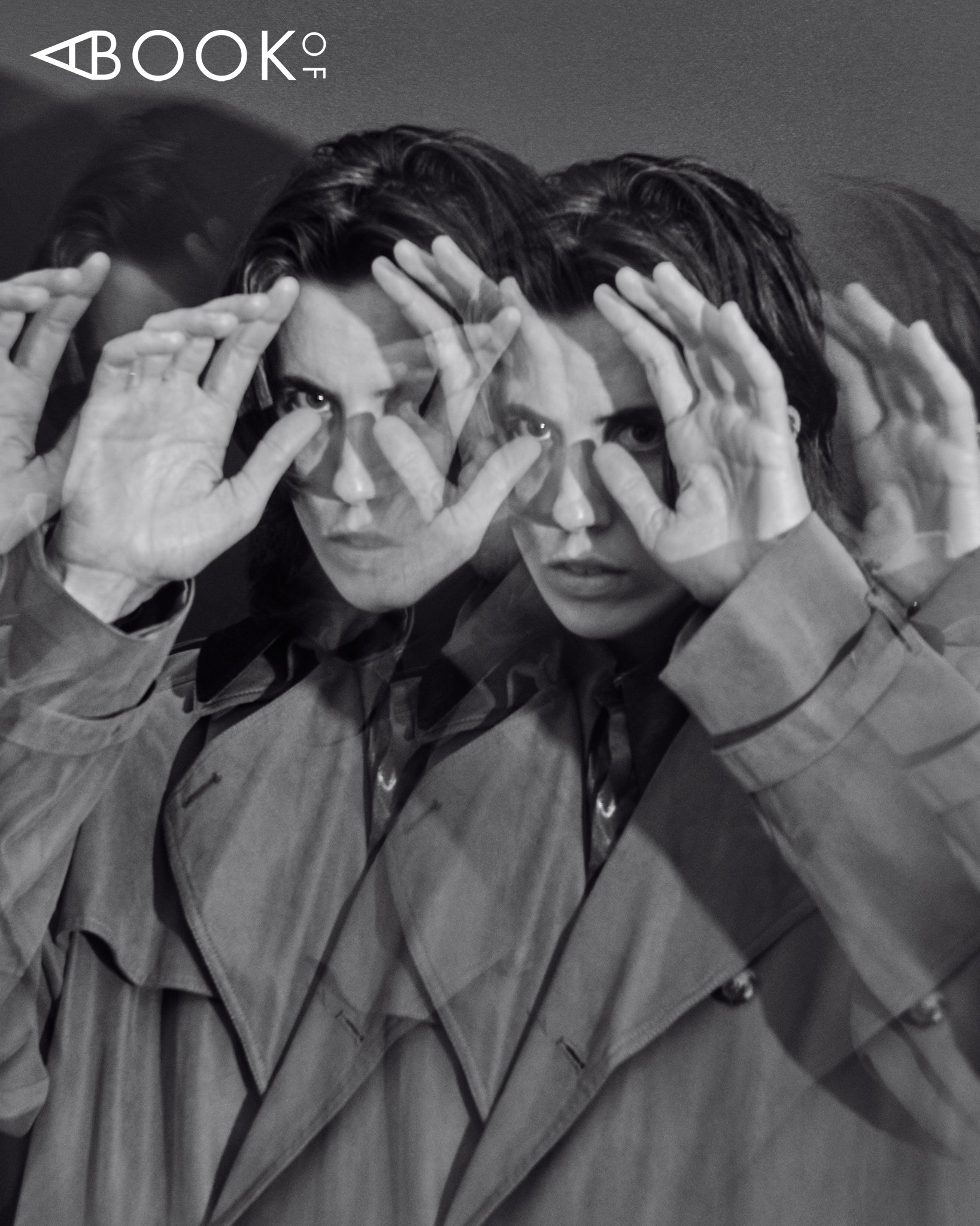
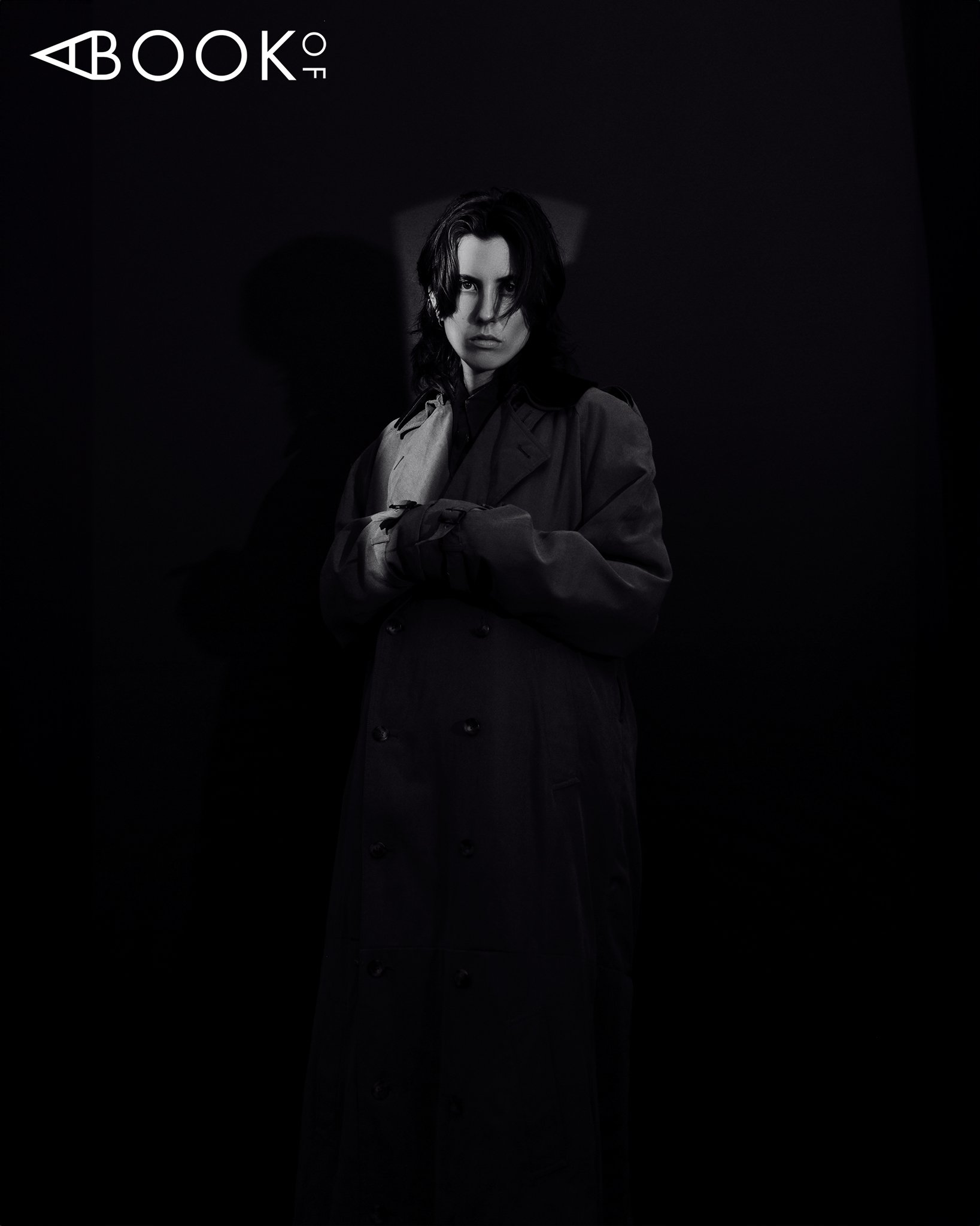
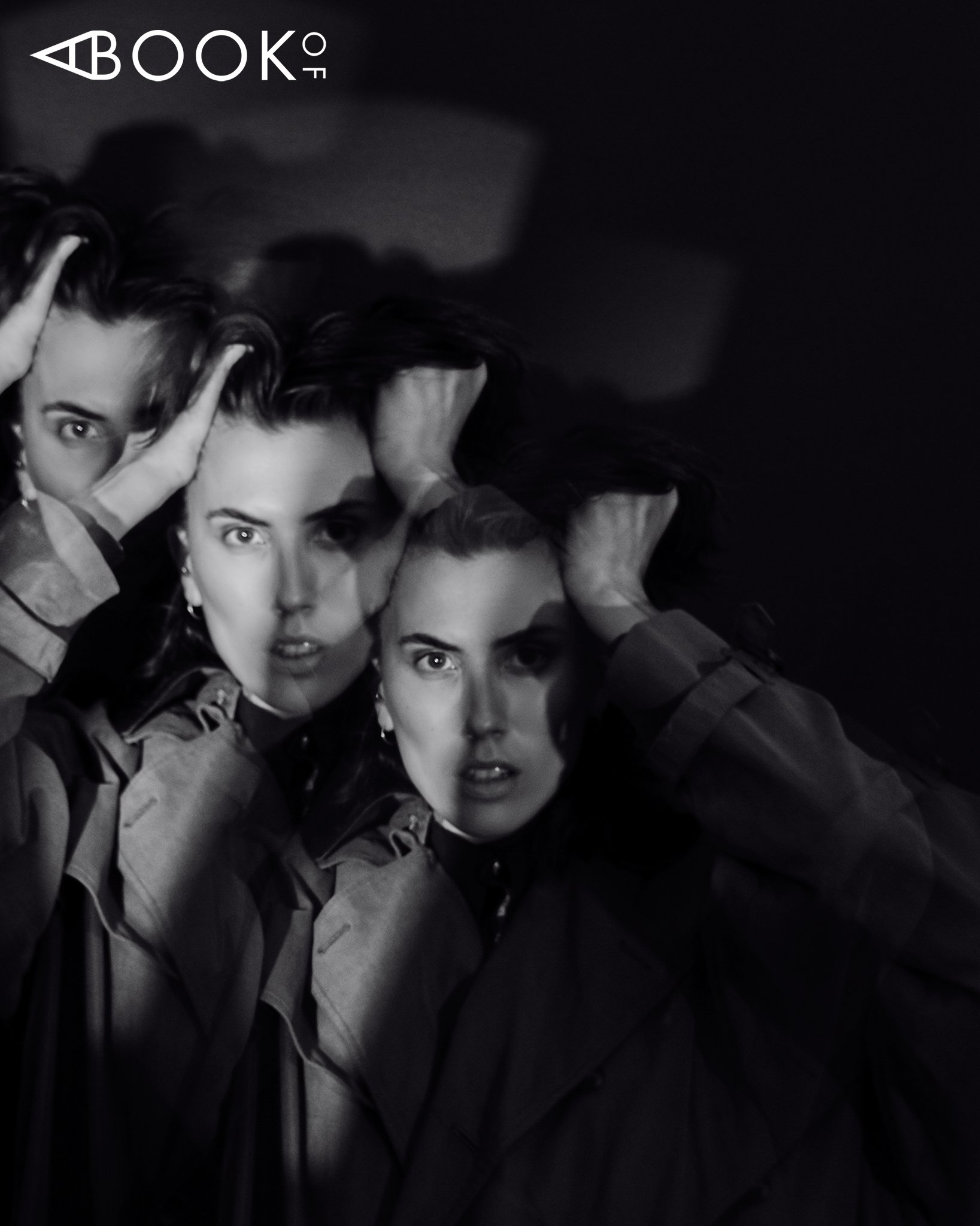

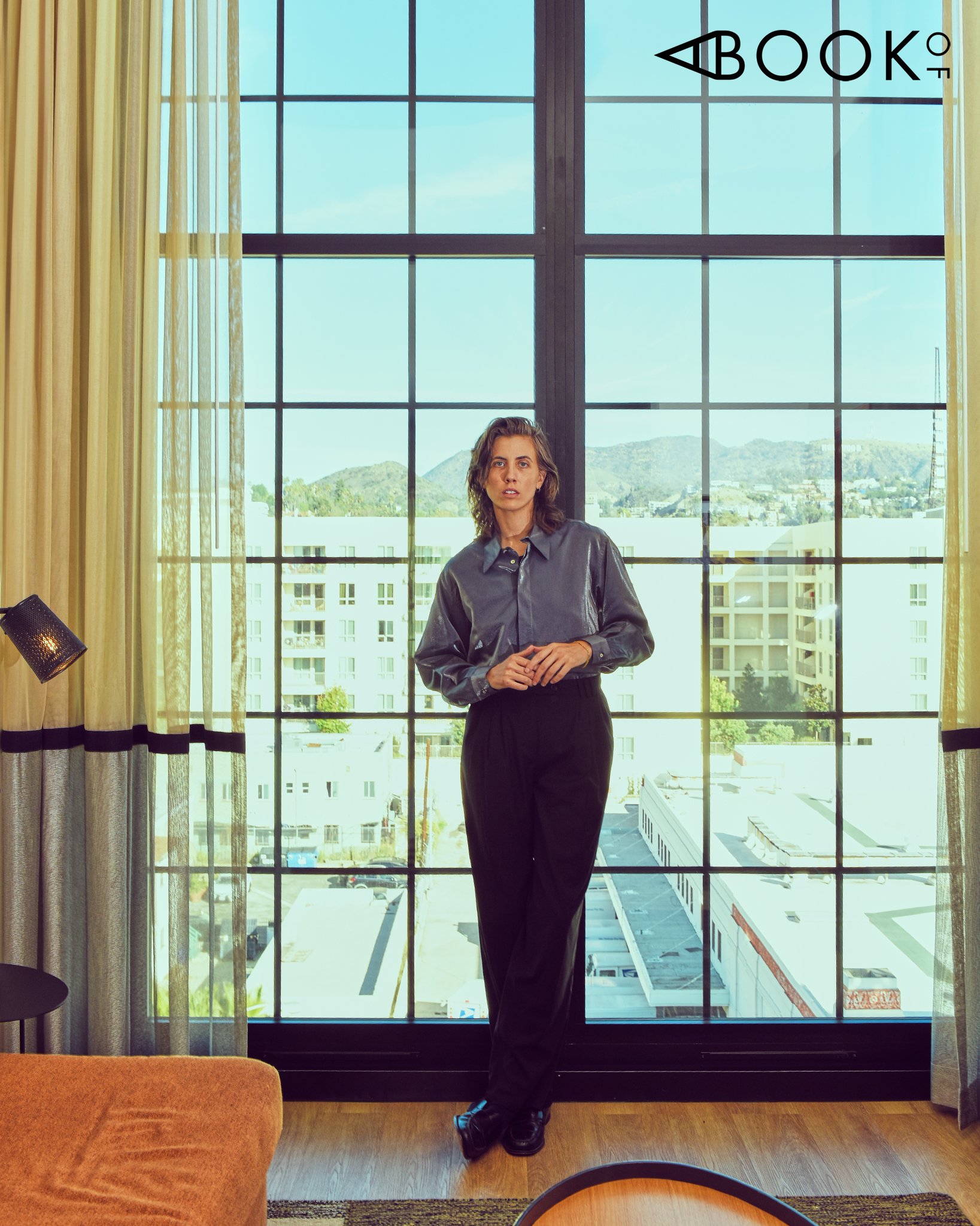
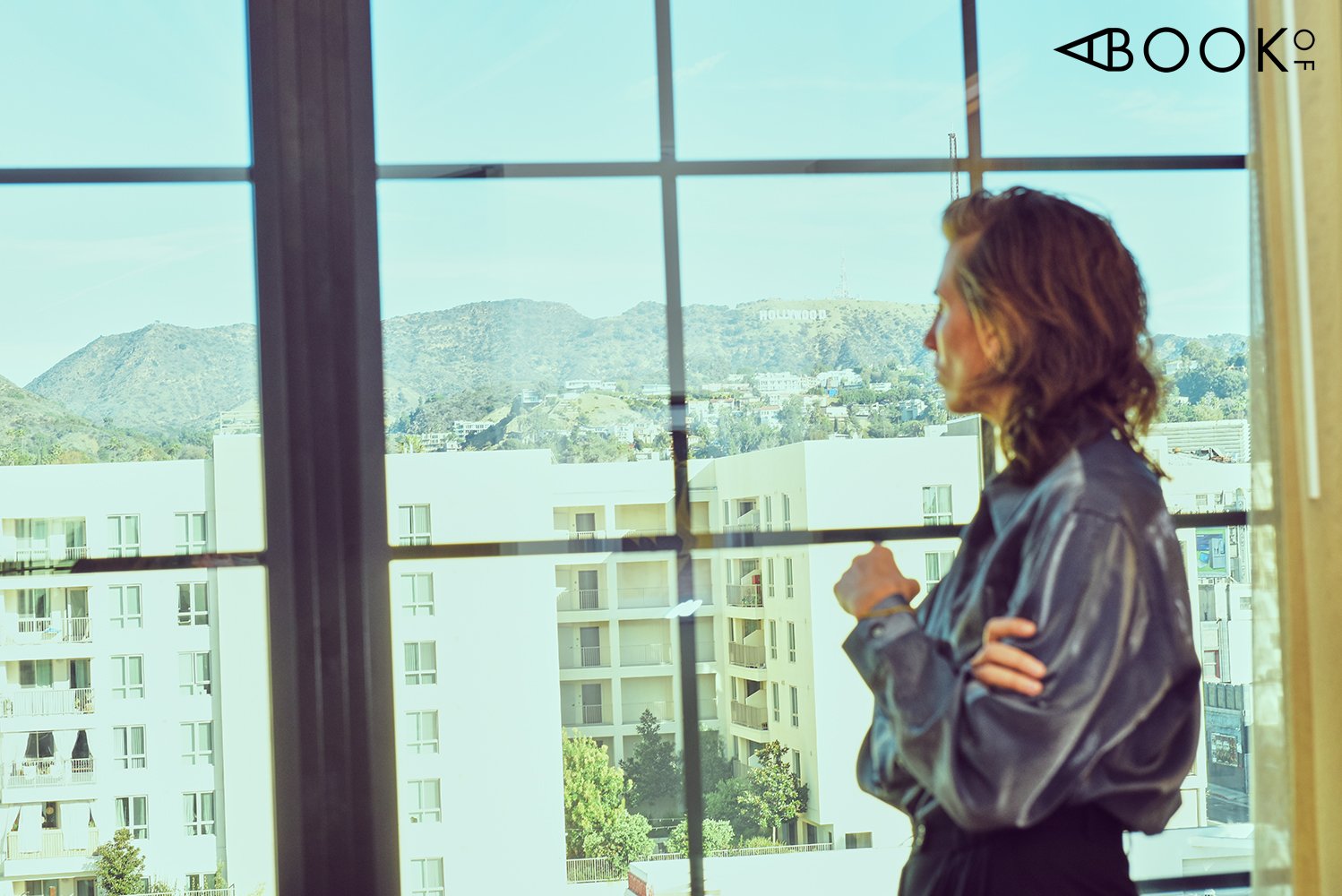
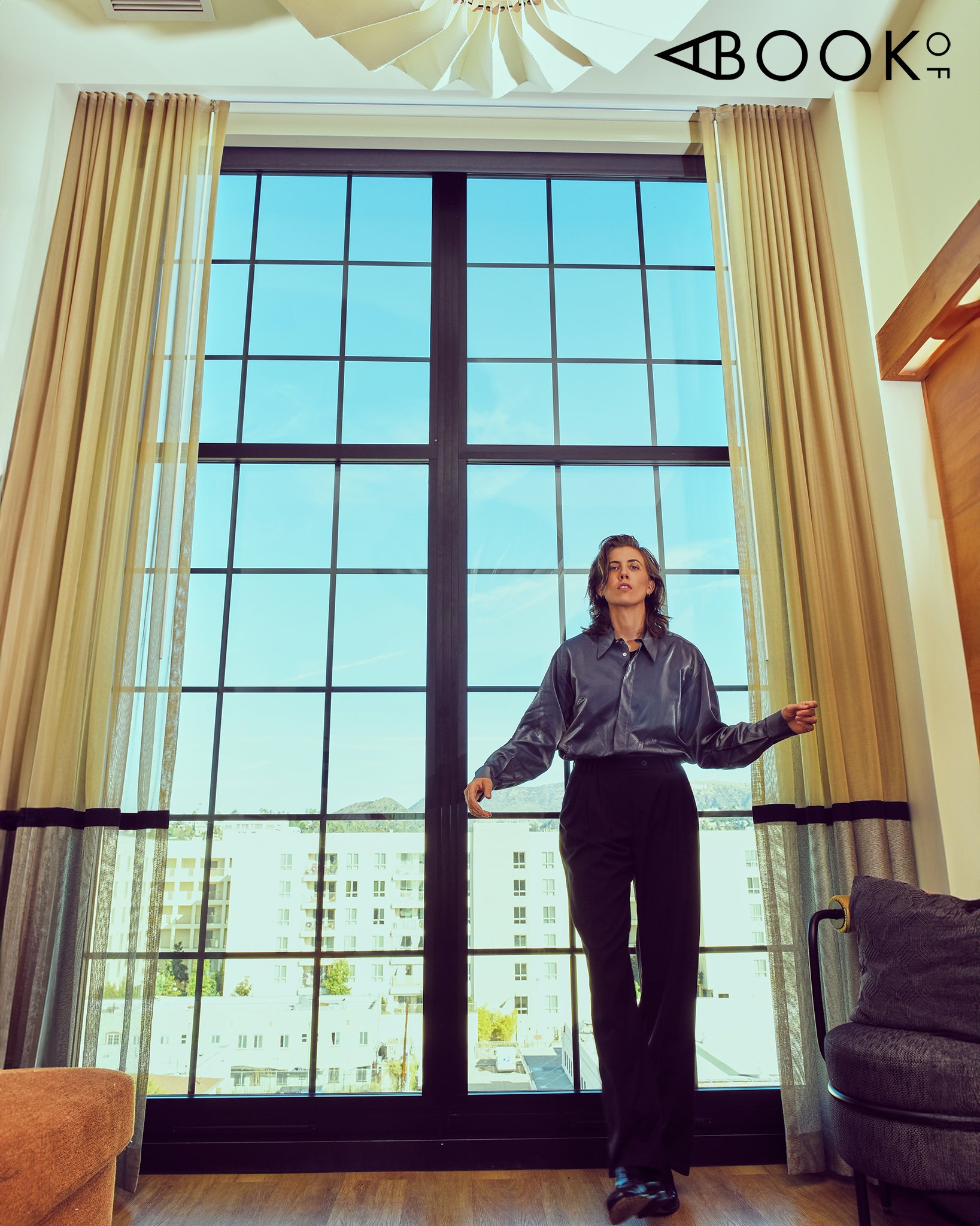
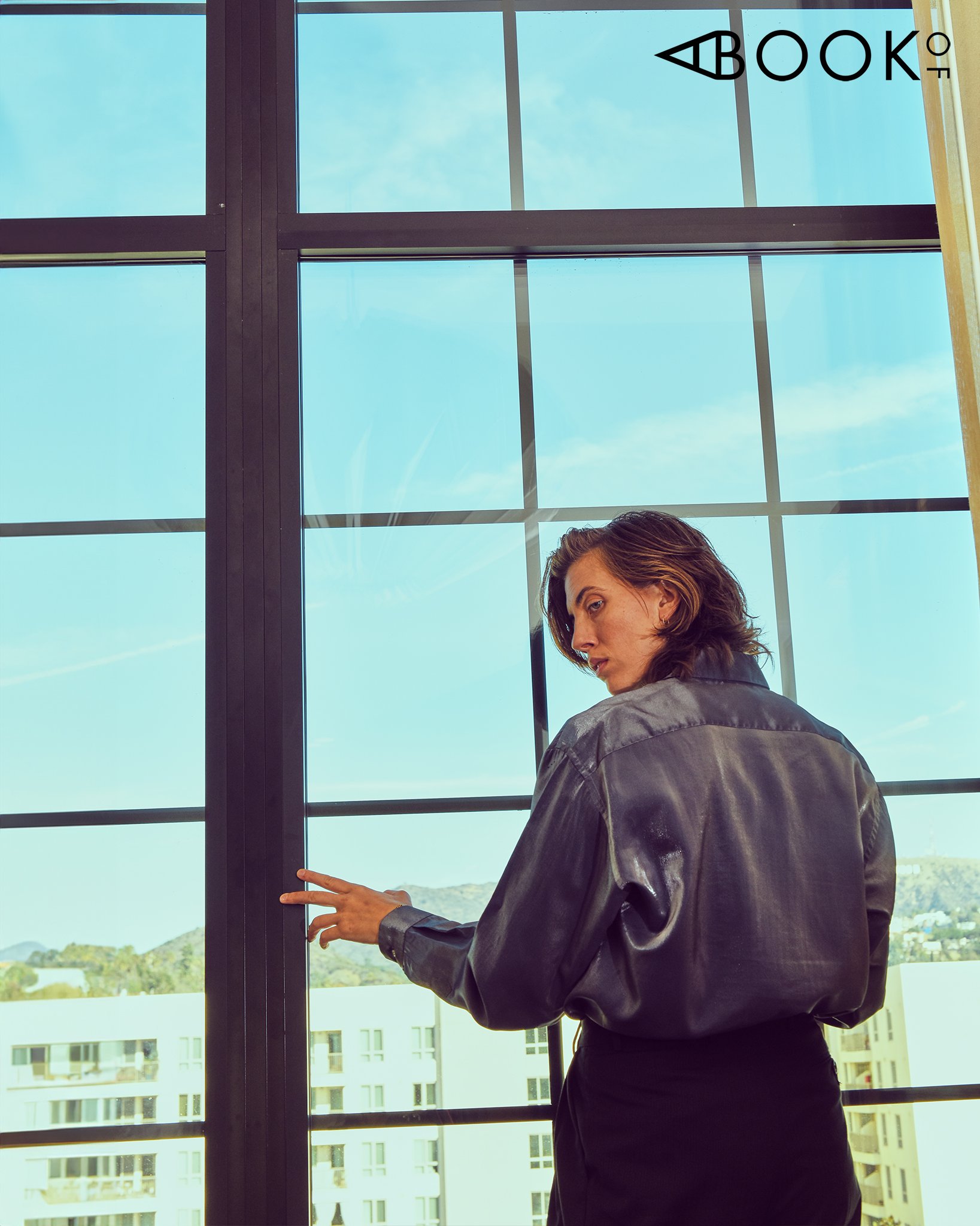



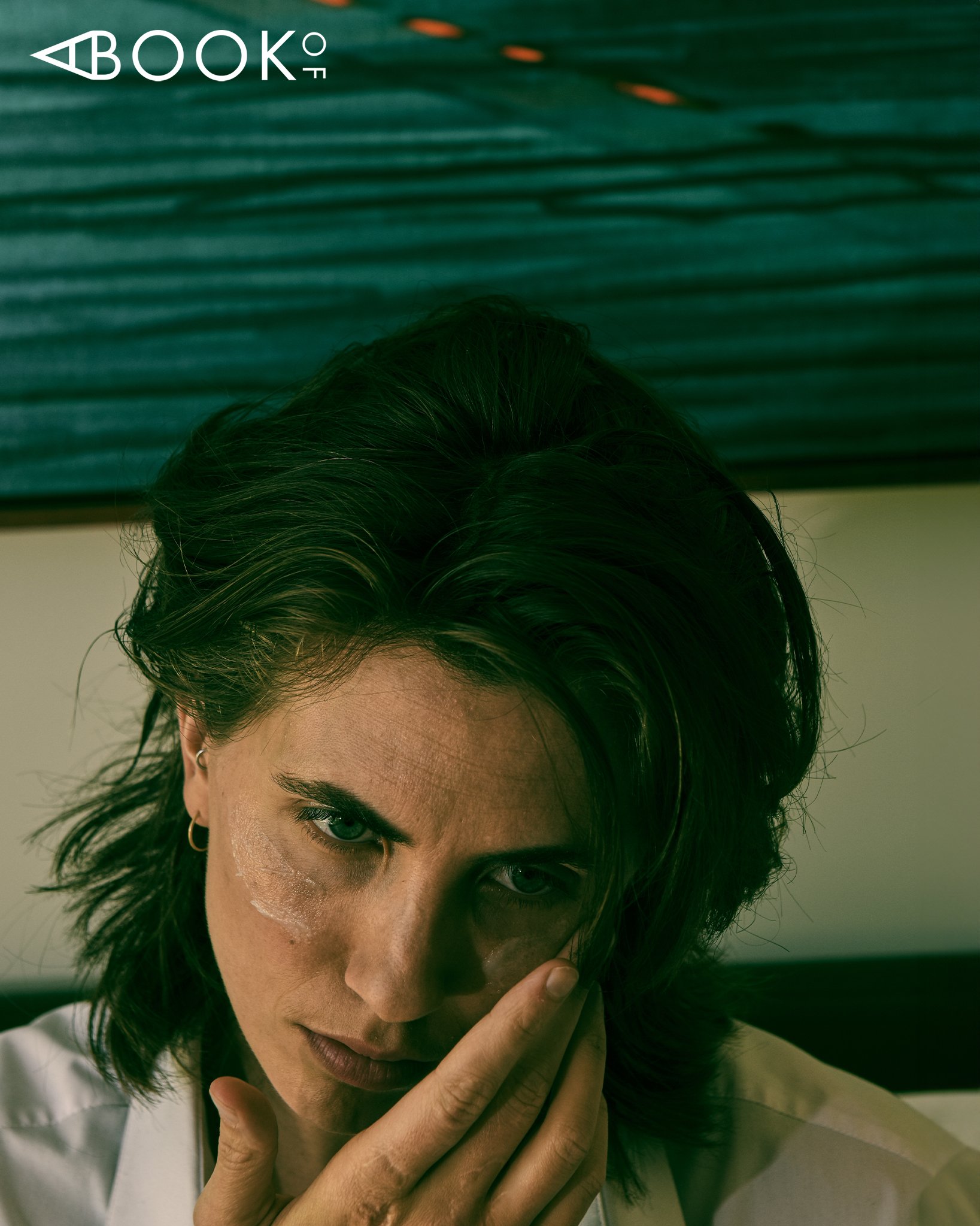
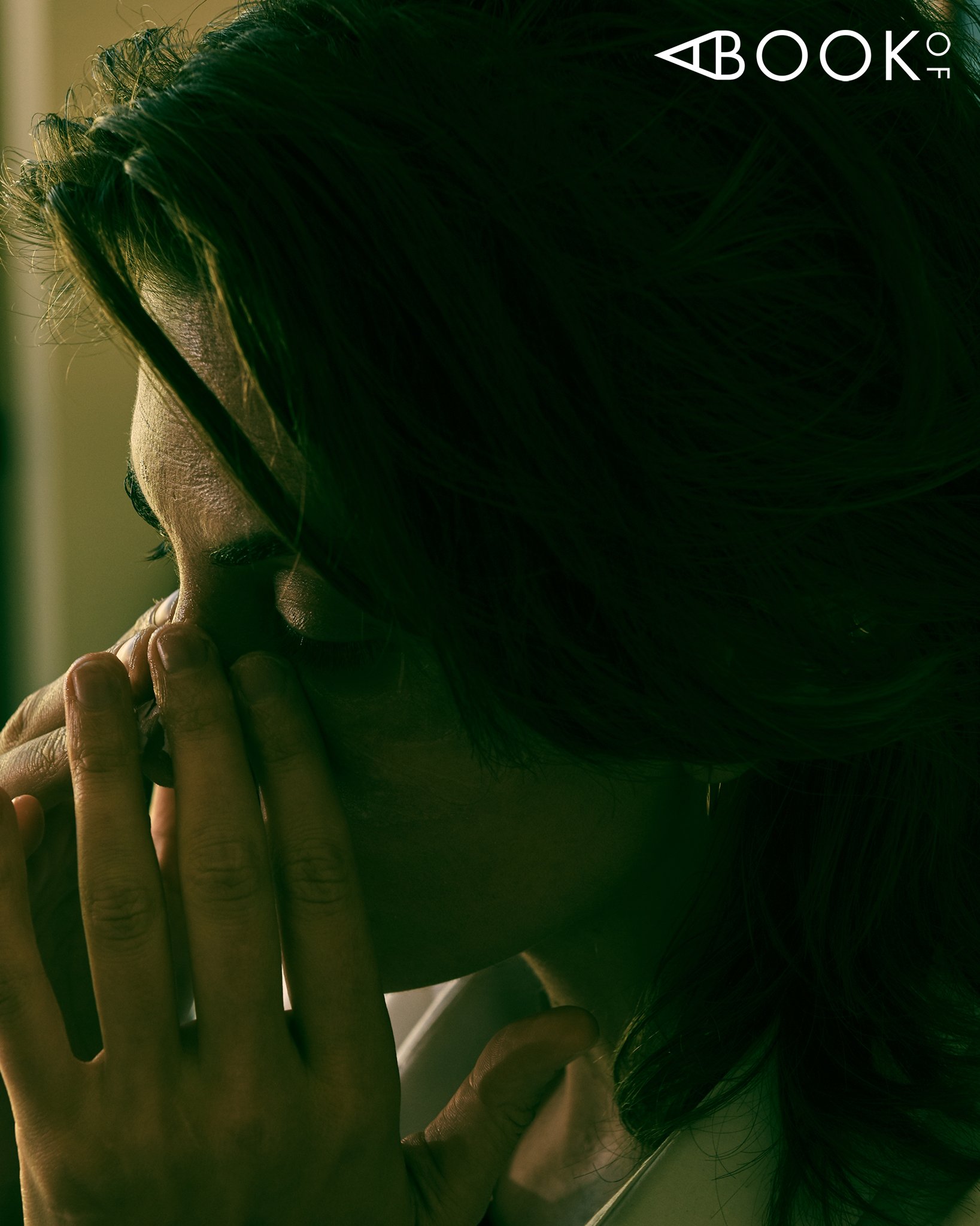
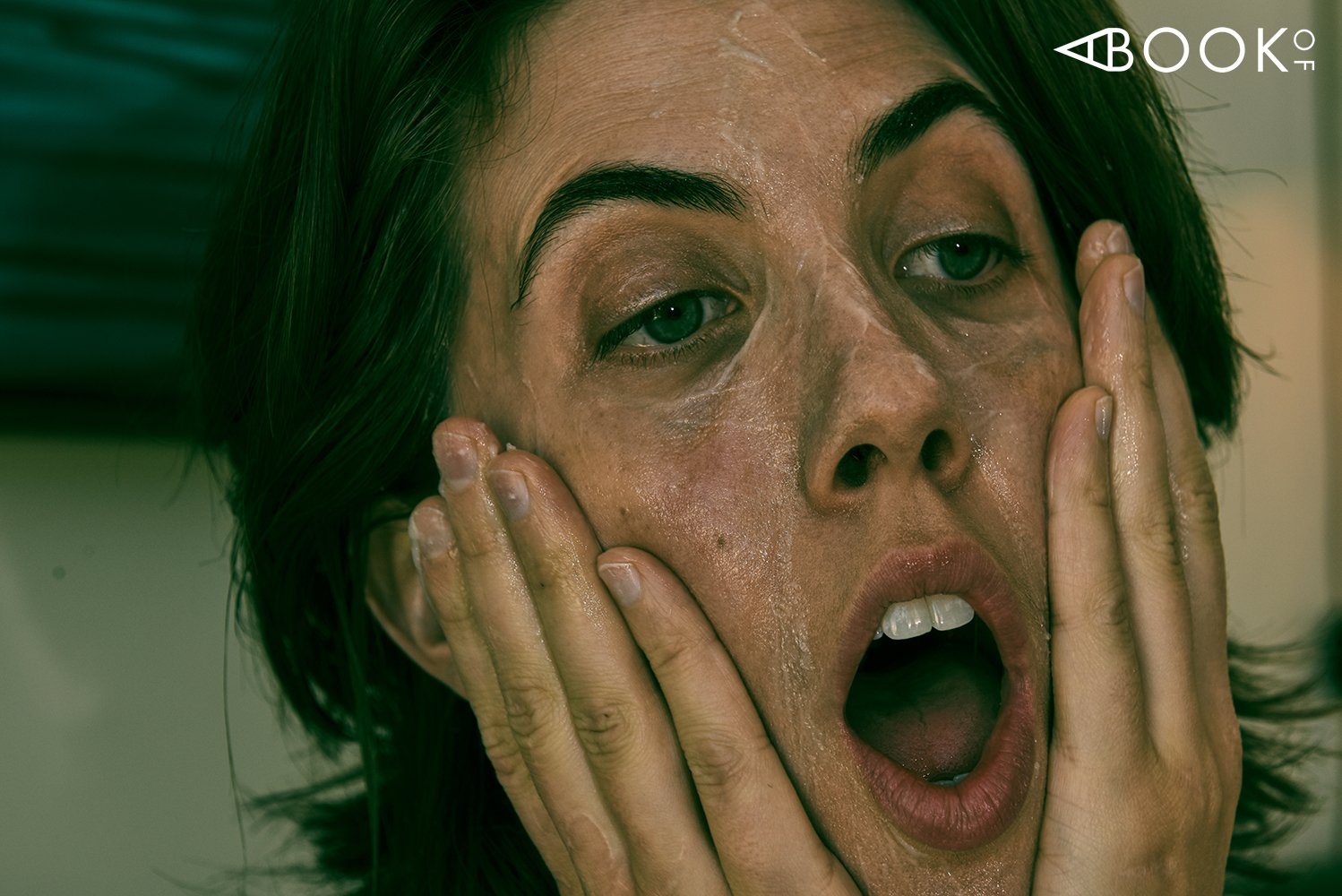
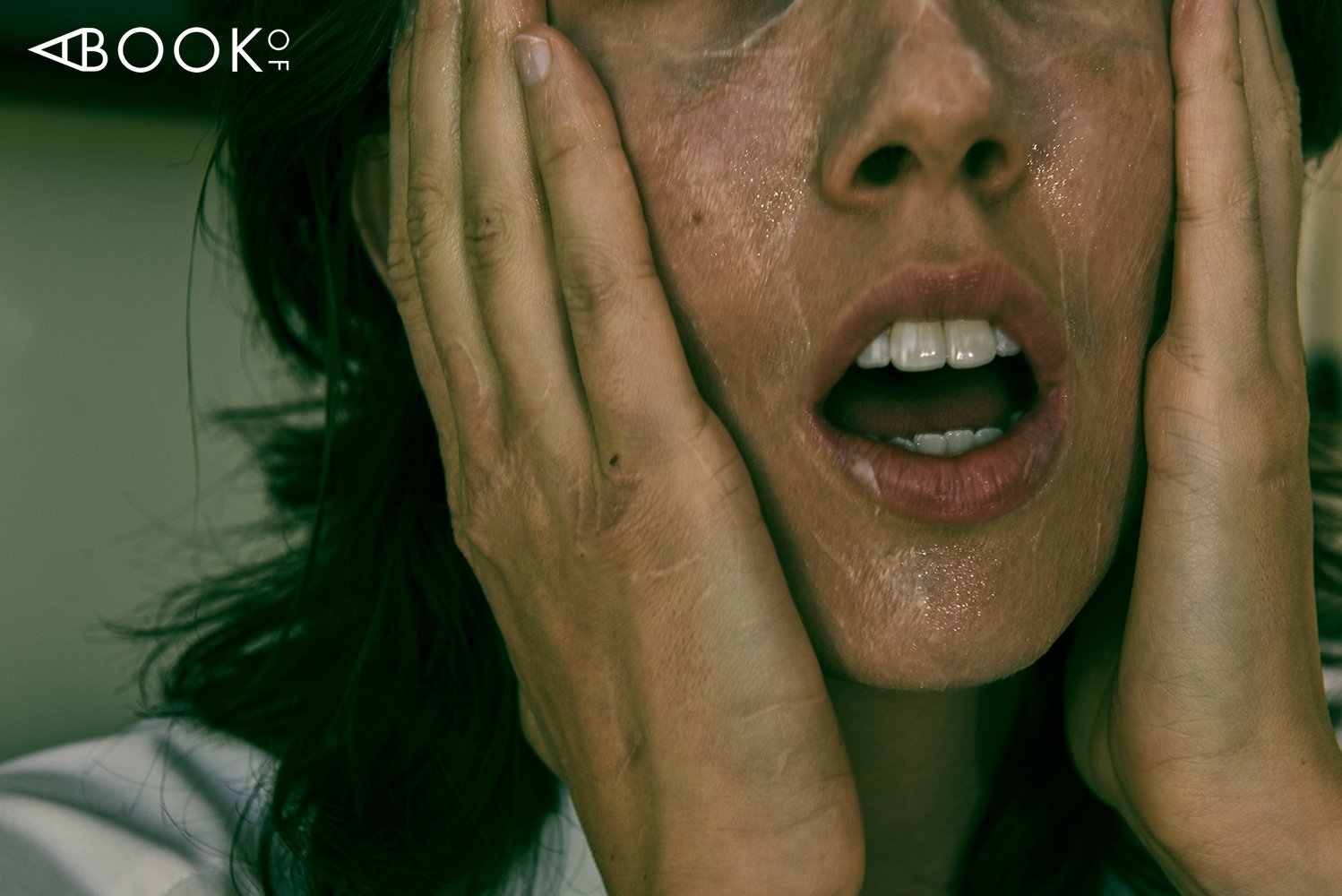
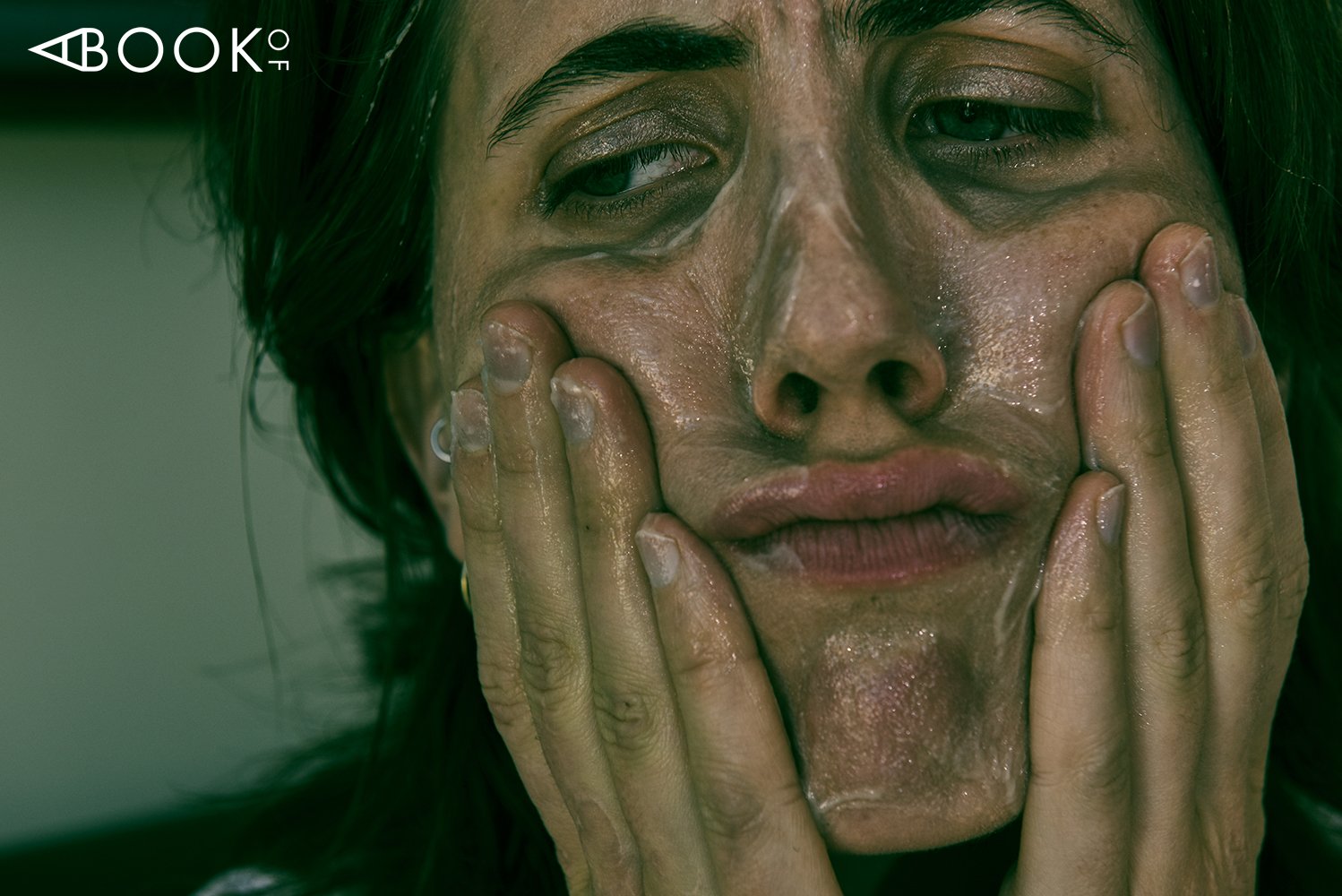
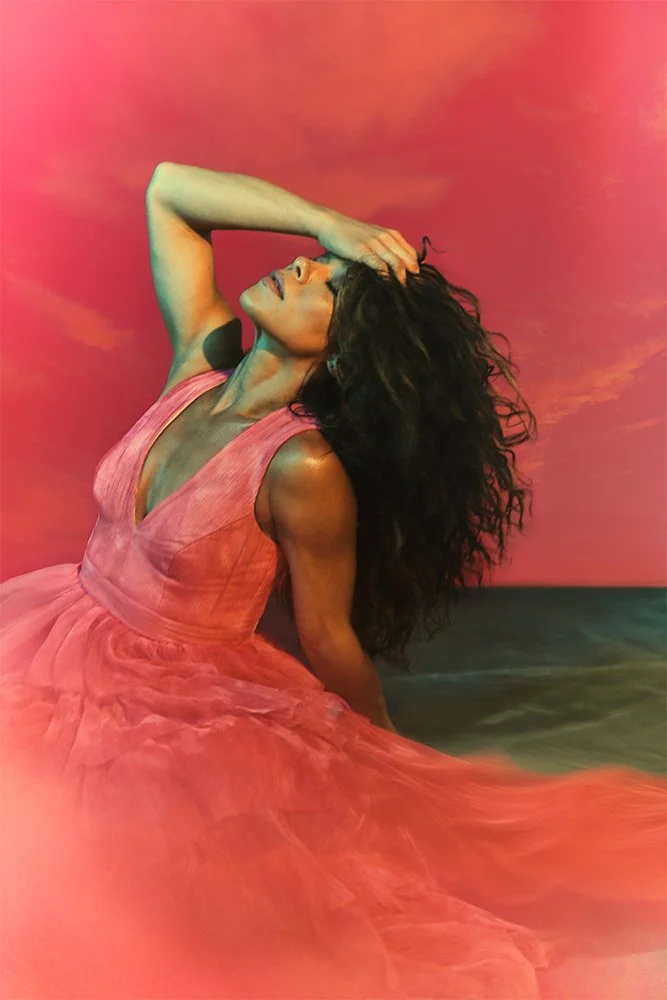

![RYAN GUZMAN: FUELED BY FIRE [IN PRINT]](https://images.squarespace-cdn.com/content/v1/56c3533a37013b198dcdb996/1728757755981-D1PLKV5HMNR7I9787KP3/RYAN+GUZMAN+A+BOOK+OF+MAGAZINE+PRINT+COVER+web.jpg)




![TOMER CAPONE: PASSIONATE PURSUIT [IN PRINT]](https://images.squarespace-cdn.com/content/v1/56c3533a37013b198dcdb996/1722284693387-DYV7WBS749CHW93YHL10/A+BOOK+OF+TOMER+CAPONE+cover+Web.jpg)
![KAREN FUKUHARA: SILENT STRENGTH [IN PRINT]](https://images.squarespace-cdn.com/content/v1/56c3533a37013b198dcdb996/1721845615346-TVTXWUFM6U0SW38KUGKV/KAREN_FUKUHARA_ABOOKOF_COVER.jpg)

![CHACE CRAWFORD: THE DEEP IMPACT [IN PRINT]](https://images.squarespace-cdn.com/content/v1/56c3533a37013b198dcdb996/1718853333097-26RCKKTFFMKVBKXOJX1D/CHACE+CRAWFORD27805+copy+2.jpg)
![SASHA COLBY: ECHOES OF ALOHA [IN PRINT]](https://images.squarespace-cdn.com/content/v1/56c3533a37013b198dcdb996/1712191464541-T2IFJDZ47QDJPYSWS1RZ/ABO+SASHA+COLBY+WEB+COVER+.jpg)